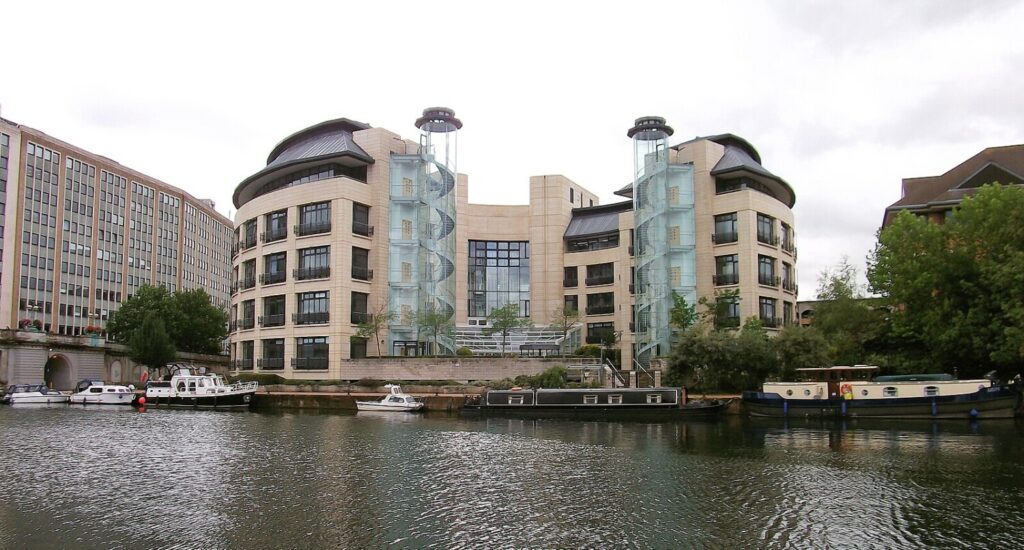Ethiopia’s Demand for Red Sea Access and Its Implications for Regional Political Risks
Introduction
Ethiopia, a landlocked nation since the secession of Eritrea in 1993, has reignited debates and tensions in the Horn of Africa with its recent call for access to the Red Sea. Prime Minister Abiy Ahmed, in his 2023 parliamentary speech, emphasised the strategic and existential importance of sea access for Ethiopia’s burgeoning population and expanding economy. He argued that reliance on Djibouti for maritime trade — currently responsible for over 95% of Ethiopia’s import and export activities — is unsustainable in the long term (Abebe, 2023).
This article explores Ethiopia’s strategic demands for Red Sea access, recent military and economic maneuvers, and the implications of these developments for regional political risks. With regional actors already entangled in internal and cross-border tensions, Ethiopia’s assertiveness introduces new dynamics that could either reshape cooperation or exacerbate conflict in the Horn of Africa.
Ethiopia’s Maritime Dependence and Strategic Interests
As of 2024, Ethiopia has a population exceeding 126 million, making it the second-most populous country in Africa (World Bank, 2024). With an average annual GDP growth of 6.1% over the past decade, the need for efficient trade infrastructure is more pressing than ever (IMF, 2024). Ethiopia’s dependence on Djibouti’s ports costs the country an estimated $1.5 billion annually in logistics and transit fees (Gebresenbet, 2023).
Prime Minister Abiy’s remarks in October 2023 framed sea access as a national security priority and hinted at possible geopolitical rearrangements if diplomatic channels fail. While Ethiopian officials assert a peaceful approach, the rhetoric has raised alarm in neighboring states, particularly Eritrea and Somalia, due to historical animosities and unresolved territorial disputes (International Crisis Group, 2023).
Recent Military and Economic Deployments
Ethiopia has significantly increased its defense spending in recent years. According to Stockholm International Peace Research Institute (SIPRI, 2024), Ethiopia’s military expenditure rose from $470 million in 2021 to $640 million in 2023, 36% growth in just two years. The government has also procured naval training and equipment through partnerships with Turkey and France, signaling an intent to develop a maritime force despite its landlocked status (Dagne, 2024).
In addition to military preparations, Ethiopia has expanded infrastructure and logistics investments in anticipation of broader trade opportunities. The government signed new agreements in 2023 with Somaliland, an autonomous region of Somalia, to explore port access at Berbera (African Intelligence, 2024). These developments have drawn condemnation from Somalia, which considers Somaliland an integral part of its territory.
On the economic front, Ethiopia continues to engage in negotiations with Eritrea and Sudan, offering joint infrastructure and energy projects as incentives for regional cooperation. The Grand Ethiopian Renaissance Dam (GERD), now over 95% complete, is one such project Ethiopia is leveraging to gain political capital (Tesfaye and Kidane, 2023).
Regional Political Risks
The demand for Red Sea access carries both direct and indirect risks for the Horn of Africa:
- Heightened Tensions with Eritrea: Although relations improved following the 2018 peace agreement, Eritrea remains wary of Ethiopia’s intentions. Recent troop movements near the border have fueled speculation about potential clashes, particularly in disputed areas such as Badme (Mesfin, 2024).
- Strained Ethiopia-Somalia Relations: Ethiopia’s engagement with Somaliland has been described by Somali officials as a violation of sovereignty. In response, Somalia recalled its ambassador to Addis Ababa in January 2024 and sought support from the African Union to mediate the dispute (Mohamud, 2024).
- Internal Political Pressures: Domestically, Ethiopia faces mounting pressure from nationalist groups and opposition parties. The Tigray and Amhara regions, still reeling from recent conflicts, have expressed concern that the Red Sea narrative may be used to divert attention from unresolved grievances at home (Yohannes, 2024).
- Militarization of the Red Sea: The region is already a geopolitical hotspot with the presence of international naval forces, including those from the U.S., China, and the Gulf States. Ethiopia’s ambition to establish a naval base in collaboration with regional actors such as Somaliland could add another layer of military complexity (Verhoeven, 2024).
Opportunities for Regional Integration or Conflict
Despite the risks, Ethiopia’s demand also presents opportunities for regional integration. Analysts argue that a multilateral agreement on Red Sea access could lead to shared infrastructure development, joint security arrangements, and economic corridors that benefit all parties involved (Berhe and Clapham, 2023).
For instance, the African Continental Free Trade Area (AfCFTA) provides a framework for regional cooperation. Ethiopia’s trade strategy could be reoriented toward mutually beneficial partnerships under AfCFTA, reducing reliance on unilateral maneuvers and mitigating the potential for conflict (UNECA, 2024).
Moreover, Gulf States such as the UAE and Saudi Arabia — who have significant commercial interests in the Red Sea — may play a mediating role. In 2023, the UAE facilitated informal discussions between Ethiopia and Eritrea on port usage and customs integration (Al Jazeera, 2023).
Conclusion
Ethiopia’s renewed demand for Red Sea access is a reflection of its growing economic aspirations and strategic insecurities. However, the regime’s pursuit of ethnic and group-based hegemonic interests may take precedence over economic and national security priorities. While the quest for access is not inherently destabilizing, the way it is pursued could reshape the regional order for better or worse. Military buildups, contested alliances, and unresolved national conflicts render the situation highly volatile.
Ethiopia and its neighbors must prioritize diplomacy and multilateral dialogue to prevent escalation. The African Union, IGAD, and international partners should facilitate structured negotiations to turn a potential flashpoint into a foundation for cooperation. The future stability of the Horn of Africa may well hinge on how the Red Sea question is resolved.
References
Abebe, A. (2023) ‘Why Ethiopia’s Red Sea Ambitions Alarm the Region’, Horn Review, 12(3), pp. 21–25.
African Intelligence (2024) ‘Berbera Deal: Strategic Shift or Provocation?’, Africa Confidential, 65(1), pp. 10–13.
Al Jazeera (2023) ‘UAE Mediation in Red Sea Talks: A Diplomatic Backchannel?’, Al Jazeera News, 28 October. Available at: https://www.aljazeera.com/news/2023/10/28/uae-mediates-in-red-sea-access-talks. (Accessed: 25 May 2025).
Berhe, M. and Clapham, C. (2023) ‘Navigating the Horn: State Interests and Sea Access in Ethiopia’, African Affairs, 122(489), pp. 456–476.
Dagne, H. (2024) ‘Ethiopia’s Naval Aspirations: A Case of Strategic Overreach?’, Center for Strategic Studies Africa Briefs, 15(2), pp. 1–8.
Gebresenbet, F. (2023) ‘Maritime Dependency and Trade Vulnerability in Ethiopia’, Journal of African Political Economy, 45(3), pp. 302–317.
International Monetary Fund (IMF) (2024) Ethiopia Country Report 2024. Washington, DC: International Monetary Fund.
International Crisis Group (2023) Avoiding a Red Sea Crisis: Ethiopia and Its Neighbours. Report No. 329. Nairobi/Brussels.
Mesfin, S. (2024) ‘The Border Isn’t Quiet: Post-Treaty Tensions in Badme’, African Security Review, 33(1), pp. 58–71.
Mohamud, A. (2024) ‘Somalia’s Position on Somaliland and the Red Sea Dispute’, East African Geopolitical Digest, 11(2), pp. 30–34.
Stockholm International Peace Research Institute (SIPRI) (2024) Military Expenditure Database: Ethiopia Profile. Stockholm: Stockholm International Peace Research Institute.
Tesfaye, B. and Kidane, D. (2023) ‘GERD Diplomacy and Economic Bargaining in East Africa’, Water Policy Journal, 25(4), pp. 377–390.
UNECA (2024) African Trade Integration Outlook 2024. Addis Ababa: United Nations Economic Commission for Africa (UNECA).
Verhoeven, H. (2024) ‘Red Sea Rivalries and the Geopolitics of the Horn’, Global Policy Journal, 15(1), pp. 14–26.
World Bank (2024) Ethiopia Country Overview. Washington, DC: The World Bank. Available at: https://www.worldbank.org/en/country/ethiopia. (Accessed: 24 May 2025).
Yohannes, G. (2024) ‘Domestic Fallout from Foreign Policy Ambitions’, Ethiopian Political Review, 9(1), pp. 42–50.



